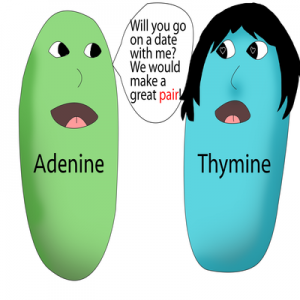Hello, this is the first newsletter from the 2015-2016 miRcore Newsletter Committee. We hope this provides a fond memory to look back on as we transition into 2016.
Here is our pun of the month:
“We cannot easily change genes, but we can change corduroys.”
In the past, miRcore volunteers have researched diseases such as Parkinson’s, Alzheimer’s and Autism. This year, we will be focusing on lung cancer. As a 501(c)(3) research organization, miRcore values science, compassion, and collaboration, and is interested in broadening personalized medicine. We volunteer, research, and brainstorm ways to impact the scientific community in terms of our focused disease.
On October 17th, Dr. David G. Beer presented a lecture on cancer for miRcore. He covered different cancer causations, and explained cancer’s development before it becomes a severely aggressive disease. He revealed that lung cancer has the highest death toll out of any other type. The fact that cancer can be more abundant in certain places provided a unique perspective of the disease. In Japan, there is a high occurrence of gastric cancer, as a likely result of Japan’s large sodium intake. Esophageal cancer was found to have a high rate in Iran, due to combinations of drinking extremely hot tea, and the consequences of smoking.
Personal Opinion: Dr. Beer’s Talk
Thanks to our special team, we had Dr. David Beer, Professor of Surgery and Professor of Radiation Oncology at University of Michigan, come in and talk about what lung cancer is, the different variations of it, and how we can help stop it. Answering the following questions about the talk is Kristine Zhou, a freshman at Pioneer High School in Ann Arbor.

What was the most important thing you learned about during Dr. Beer’s talk?
There were so many things. I definitely felt like I learned most about the
three different events that lead to lung cancer. If we’re able to identify
these steps one by one, we can start a chain reaction to prevent lung cancer.
How did you feel about the description of the current treatments?
I thought that the modern treatments were not very helpful. Chemotherapy
kills all it can see, which can eliminate cells that could help distant the lung
cancer. Even if the treatments work, there’s a really high percentage of the
lung cancer coming back.
What stood out to you during Dr. Beer’s talk?
When he showed us the statistics of high lung cancer rates in Asian women
who do not smoke. There was simply no explanation for it, and that really
intrigued me.
What information is necessary for further advancements in lung cancer?
People should acknowledge that there is more than two kinds of lung cancer.
There are still a lot of variations and ways lung cancer can be obtained. Once
we learn more about each type, or at least see the differences between each
patient, then we can really get ahead.
We have had two half-day camps this year, where people new to miRcore can become certified volunteers. The expression data analysis half day camp on December 5th detailed how to review results from our resources, and recognize their meaning. The half day R camp on December 19th explained the use of R, a computer program that efficiently organizes data.
Regarding advancements in lung cancer research outside of miRcore, an FDA approval for a specific treatment has been reported. On November 17, 2015, AstraZeneca announced the new FDA approval of the treatment for lung cancer patients. The new innovative treatment is called TAGRISSO. It is a series of daily tablets prescribed by a doctor, that treat metastatic epidermal growth factor (EGFR) patients. To be eligible for the new treatment a patient must take the FDA approved FGFR Mutation Test. “This treatment has the potential to become the standard care for patients,” says Pasi A Jänne MD, PhD. This treatment could be a breakthrough for cancer treatment, with positive tumor shrinkage, the innovational drug could make a positive impact on the world. To learn more, here is the link:
http://www.news-medical.net/news/20151117/AstraZeneca-announces-FDA-approval-of-TAGRISSO-(AZD9291)-for-treatment-of-lung-cancer-patients.aspx
Recently, we have been sifting through databases such as NCBI and String-db to find information that could benefit lung cancer research. NCBI contains experimental data available for us to form possibly novel findings in our specific disease. String-db is another resource we use to verify the functions and patterns of the genes that we believe are involved in the illness. With your support, anyone can initiate medical research that matters to them.

